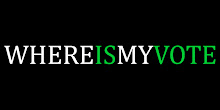As already mentioned in my last post, I have participated on a UROP project for a period of seven weeks. UROP stands for undergraduate research opportunity program.
The project's name was "A comparative analysis of anonymous file sharing networks regarding anonymity, efficiency and usability". As I started working on this project my first task was to get "inside", which means, I had to read a lot of stuff about different file sharing networks which already exist and try to understand how they work. If you are interested to know what I was reading about look for GNUnet, StealthNet, ANTs, Owner Free Filesystem, ...
After getting a raw overview of different file sharing projects we chose to analyze the Owner Free Filesystem short OFF-system. OFF-system works really smart and interesting:
The digital media, such as a PDF-file, would be divided into 128 KB chunks, which are called blocks. These blocks will be encrypted through a technique called XOR. Imagine you have a folder, where the still unencrypted blocks of a file are stored. To encrypt the first block of the file, you have to take it and XOR it with a randomly chosen block from the same folder. You store the result and XOR it with another randomly chosen block. You do this to all blocks until every block is encrypted. You see, as the blocks length are the same so the XOR-ing does not seem to be any problem. The point is that the blocks look totally different than the originally blocks, and no body can say to which file they belong. Then a block can belong to several files, we call this multi-use data.
To be able to reconstruct a file from the encrypted blocks, we store the name of each 3 blocks which have to be XOR-ed to get the original block and put this information into a special block file called descriptor, where also the order of blocks by the original file is also stored.
Descriptors are sent indirectly to users who want to make a download. OFF-system's anonymity is different than the usual concepts, if you like to know more about OFF-system, read
here it's really exciting.
One other reason we chose to analyze OFF-System is the idea behind it. People who have designed OFF-system and are now working to get a better implementation of it, have the intention to create a world library, where every one has the possibility to make his own digital media available for all other users from around the world. It can be compared to a local city library, where every one can borrow books or now times even music or movies and bring it back after a while. The world library would make it possible that anyone has the opportunity to contribute to the human science and the preservation of it for the next generations.
My supervisor is a specialist in this area and totally crazy about this idea. He helped me a lot throughout this project.
Now you are asking what was may "researching" task. Well as the name of the project already says we were going to analyze OFF-system. For this purpose I wrote several little programs to filter the desired information from OFF-system's log-file and put them into a database. One program had to make databases of all available files and descriptors on OFF-system's network. Another program compared the one big database of "watched" blocks with databases of descriptors to find out if the assertion of multi-use data was true and if there is any evidence that the anonymity does not work properly.
We did find out the blocks are multi-use data as they appear in different block-list of files but could not find any evidence that Off-system is not anonymous which also does not mean that it is anonymous. So there is need for further research on this topic.
At the end I want to wish the best for the people who are working on OFF-system.

